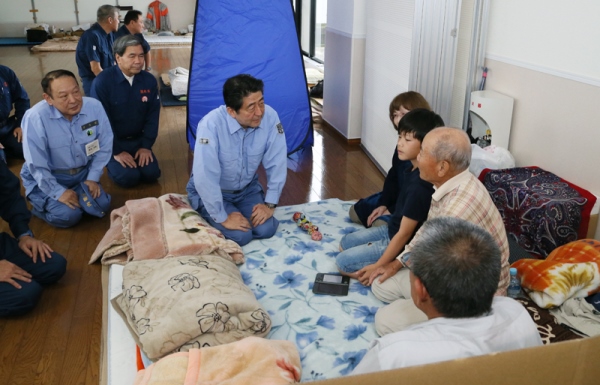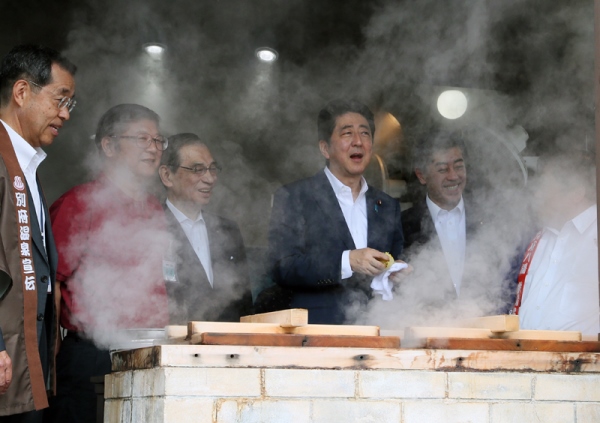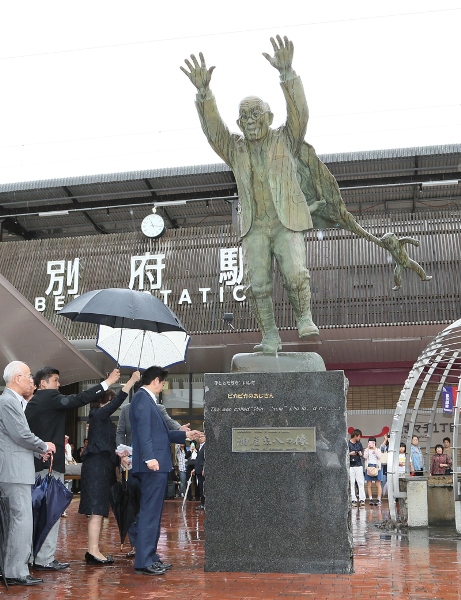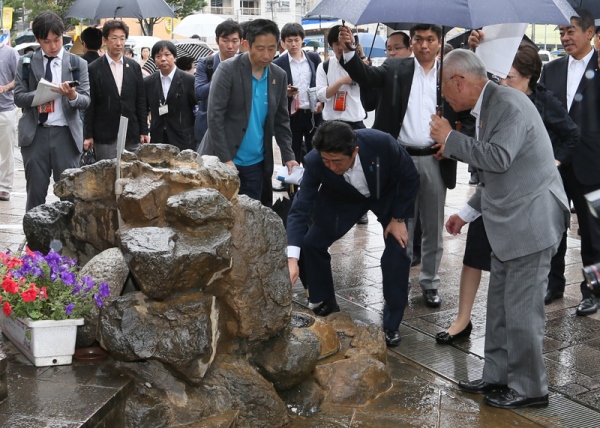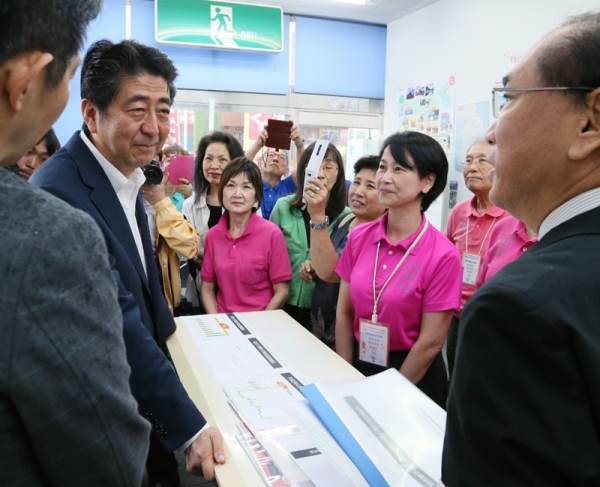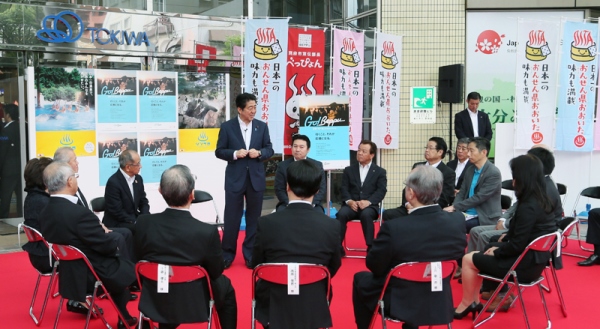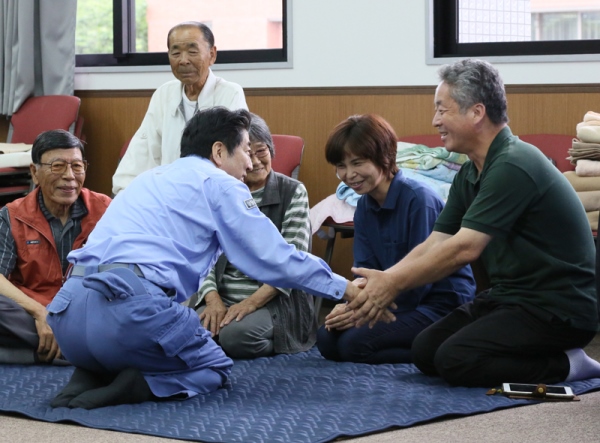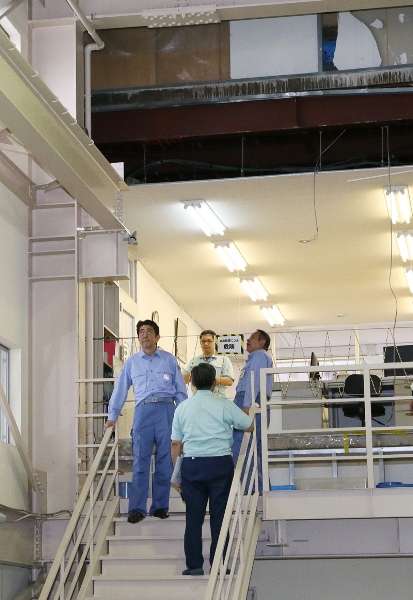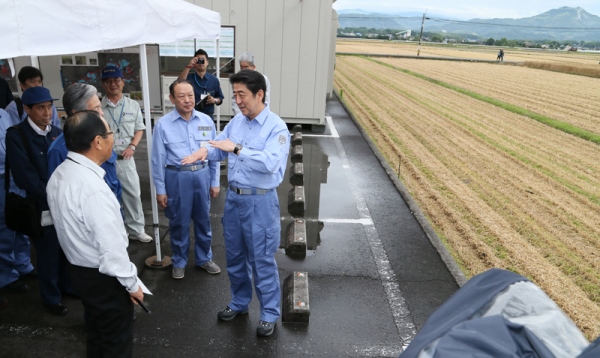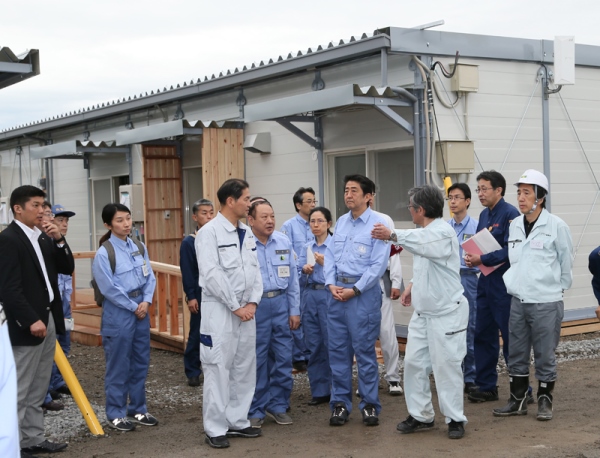Home > News > The Prime Minister in Action > June 2016 > Visit to Oita Prefecture and Kumamoto Prefecture for an Inspection of the State of Recovery and Reconstruction from the Kumamoto Earthquake
The Prime Minister in Action
Visit to Oita Prefecture and Kumamoto Prefecture for an Inspection of the State of Recovery and Reconstruction from the Kumamoto Earthquake
June 4, 2016
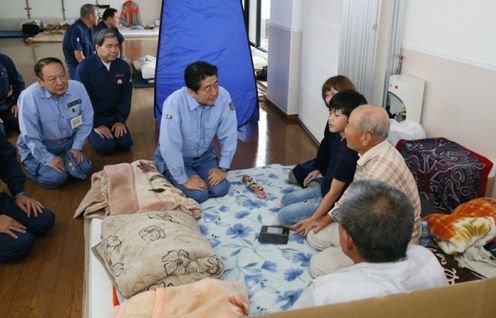
Photograph of the Prime Minister encouraging evacuees (1)
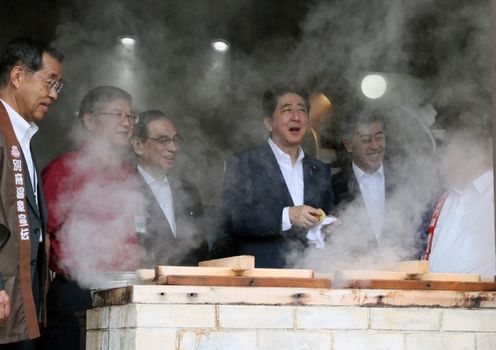
Photograph of the Prime Minister visiting Kannawa hot springs
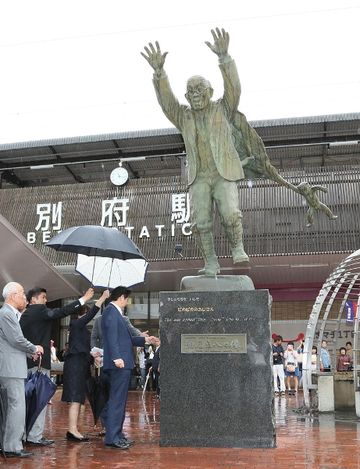
Photograph of the Prime Minister visiting Beppu City (1)
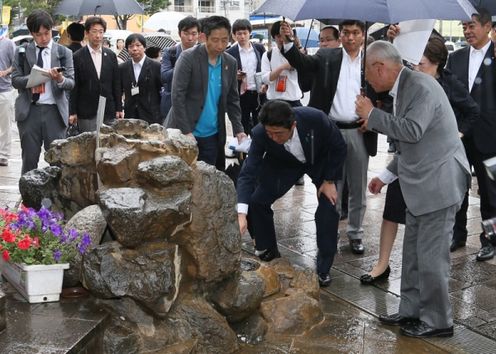
Photograph of the Prime Minister visiting Beppu City (2)
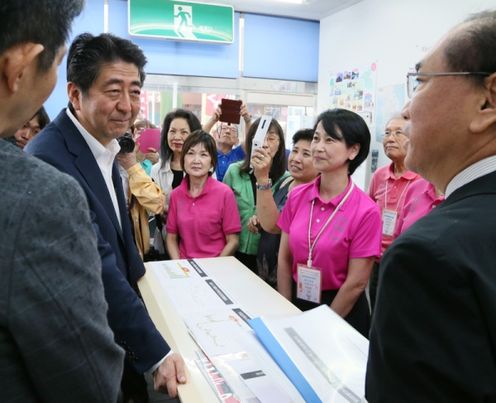
Photograph of the Prime Minister visiting the Beppu Foreign Tourist Office
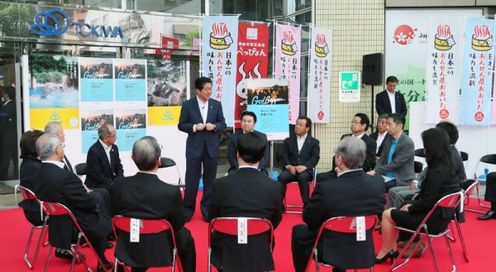
Photograph of the Prime Minister exchanging views with people involved with tourism
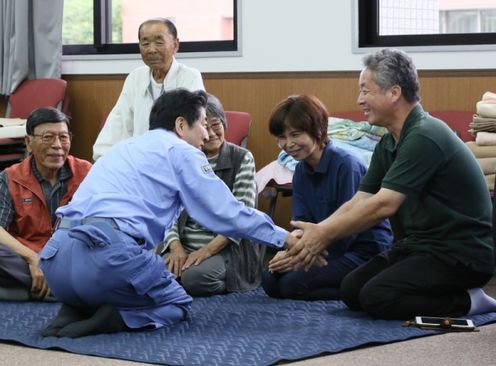
Photograph of the Prime Minister encouraging evacuees (2)
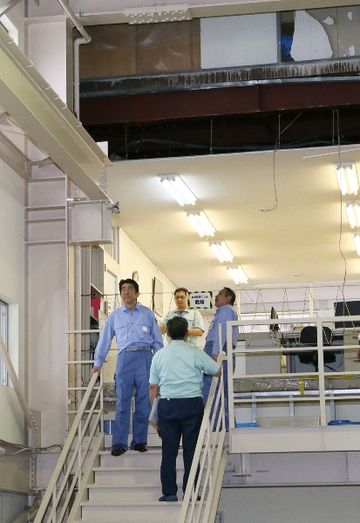
Photograph of the Prime Minister visiting a factory in Kashima Town
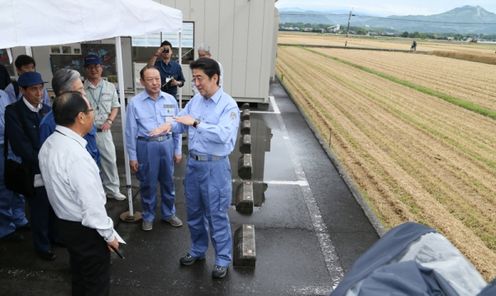
Photograph of the Prime Minister visiting a farm in Kashima Town
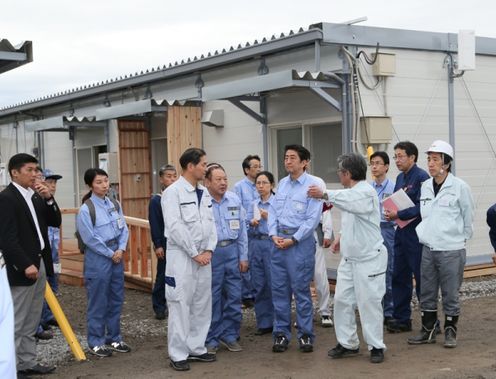
Photograph of the Prime Minister visiting the Hiroyasu temporary housing site
[Provisional Translation]
Prime Minister Shinzo Abe visited Oita Prefecture and Kumamoto Prefecture in order to gauge the state of recovery and reconstruction following the Kumamoto Earthquake.
The Prime Minister first visited Kannawa hot springs in Beppu City, Oita Prefecture, before observing the state of Beppu City. Later, he held an exchange of views with people involved with tourism.
After his visit to Oita Prefecture, the Prime Minister said,
“First, I ate an egg that had been slow-cooked in the waters of the Kannawa hot springs. It was truly delicious. I was once again reminded of Oita’s many charms, which we can convey to Japan and the rest of the world. Since the earthquake, the number of tourists here has dropped dramatically. You have suffered a hard blow.
Tourism is a source of strength for Oita, as well as for Kyushu and Japan. The national Government will continue to offer you its full support.
We have for the first time approved the inclusion of items for Oita Prefecture in the emergency fund contained in the recent supplementary budget, such as 6 billion yen for travel tickets. I intend to tap into the wisdom of the people of Oita as we work toward the revitalization of this prefecture and the recovery of tourism.
High quality hot springs are a great source of strength for Oita, as is the hard-working attitude of the people here. I want people from all across the country to come here and experience this for themselves. The Government will also do its part to exert every effort to encourage many people, not only from around Japan but around the world as well, to come visit Oita.”
Next, the Prime Minister visited an evacuation center in Mifune Town, Kamimashiki County, Kumamoto Prefecture, where he offered encouragement to evacuees.
Afterwards, the Prime Minister visited a factory and a farm in Kashima Town.
Lastly, the Prime Minister visited the Hiroyasu temporary housing site in Mashiki Town.
After his visit to the affected areas, the Prime Minister said,
“It has been a month and a half since the earthquakes began. I spoke with people leading difficult lives as evacuees at an evacuation center in Mifune Town. This again renewed my conviction to exert every possible effort to ensure that people can move to housing where they can live safely and with peace of mind as soon as possible. Construction of more than 2,500 temporary houses is currently underway across Kumamoto Prefecture. As part of these efforts, I have heard that people will at long last be able to move into temporary houses from tomorrow in Kosa Town. Here in Mashiki Town as well, people will be able to move in from the beginning or middle of June. Today the rainy season has started. I hope that the towns, cities, and prefectures can work together to get everyone moved into housing as soon as possible.
At the same time, initiatives for recovery and reconstruction are moving forward. I have spoken to people who are working toward the revitalization of the tourism industry, particularly people in Oita who are working hard to revitalize the tourism industry and revitalize Oita as a prefecture renowned for its hot springs.
Many projects are being advanced. I have also heard from small- and medium-sized enterprises in Kashima Town who are working very hard to thoroughly revitalize their supply chains and who are firmly maintaining employment. At one farm, in Kashima Town as well, I saw that people are working toward crop diversification using soy beans and are carefully maintaining the production systems they have had up until now on their cultivated land. These are the kinds of efforts I heard about. The Government will fully support all of these efforts. I wish to offer support from within the established supplementary budget; for instance, through group subsidies, or through support for the purchase of travel tickets or the purchase of seeds by farms.
Related to financial support, we are now working to reduce the financial burdens placed on municipalities, through the supplementary budget and the designation of this earthquake as a ‘Disaster of Extreme Severity.’ We will continue to keep careful watch over the fiscal situations of municipalities, and I hope that as we do that, we will be able to thoroughly offer needed support while keeping all of the issues we face in mind. I want to make it absolutely sure that municipalities do not run out of finances. I therefore ask that you continue forward with your projects with peace of mind.”
In addition, in response to questions from journalists about policies to enhance social security and the House of Councillors election, the Prime Minister said,
“First, on the expansion and enhancement of social security, we are postponing the raising of the consumption tax from 8% to 10% for two and a half years. As such, we will not be able to enhance or expand social security as much as we had originally planned upon implementing the 10% tax rate. However, I still want to secure funding by utilizing the fruits of Abenomics and other means so that we can carry out policies related to the creation of a society in which all citizens are dynamically engaged such as the acceptance of an extra 500,000 individuals into daycares and the expansion of the number of people who can receive nursing care by over 500,000 people. In the three years since the establishment of the Abe administration, tax revenue has increased by 21 trillion yen. We intend to thoroughly accelerate Abenomics and other policies to produce further fruits. We will then prioritize the various items of the social security program and start applying these fruits wherever possible.
This summer, I wish to seek the judgement of the public on all of these matters as well through the House of Councillors election. The ruling parties will aim to win the majority of the seats that are up for re-election, and once we have won them, we will move forward with the Abenomics policies that we are advancing now. This election is truly an event that will determine whether we take a firm and robust step forward or whether we return to the difficult state that we were in when the Democratic Party of Japan was in power. We will win this election, and beyond that, we will win a majority of seats. I am deeply focused on this right now.”

